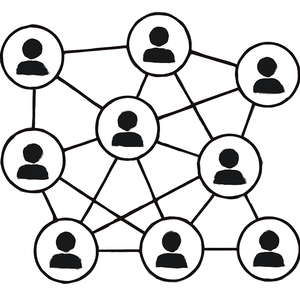Green Engineering Careers: How New Grads Can Drive Sustainability

The shift towards sustainability is not just a trend; it has become a necessity for businesses and industries worldwide. According to the U.S. Bureau of Labor Statistics, employment of mechanical engineers is projected to grow by 4% from 2019 to 2029, with a particular increase in roles related to renewable energy, waste management, and sustainable design. Companies are increasingly seeking engineers who can develop solutions that not only meet operational needs but also reduce environmental impact. For instance, mechanical engineers are at the forefront of designing energy-efficient HVAC systems, developing advanced materials for sustainable manufacturing, and creating innovative recycling technologies. Companies like Tesla and Siemens are actively hiring mechanical engineers to enhance their green technology initiatives. This growing demand presents a wealth of opportunities for new graduates to engage in meaningful work that aligns with their values.
Skills and Knowledge for a Sustainable Future
To excel in green engineering roles, new graduates should focus on acquiring a diverse skill set that goes beyond traditional mechanical engineering principles. Key areas of knowledge include: 1. **Renewable Energy Technologies**: Understanding solar, wind, and geothermal systems is essential. Courses or certifications in these areas can provide valuable insights into how mechanical engineering principles apply to sustainable energy. For example, a recent graduate with a certification in solar energy technology might find opportunities in companies focused on developing solar panels or energy storage solutions. 2. **Sustainable Design Practices**: Familiarity with concepts such as life cycle assessment (LCA), eco-design, and sustainable materials can position new grads as valuable assets to companies aiming for greener operations. Knowledge of software like SolidWorks or AutoCAD can help in designing products that minimize environmental impact. 3. **Project Management and Collaboration**: Many green engineering projects require interdisciplinary collaboration. Developing strong project management and teamwork skills will enhance a graduate's ability to contribute effectively to complex projects involving multiple stakeholders. Skills in Agile or Six Sigma methodologies can be particularly beneficial. 4. **Regulatory Knowledge**: Understanding environmental regulations and standards can help engineers design solutions that comply with legal requirements and promote sustainable practices. Familiarity with regulations such as the Clean Air Act or the Resource Conservation and Recovery Act (RCRA) can enhance a graduate's marketability.
How New Grads Can Position Themselves
To successfully enter the green engineering field, new graduates should take proactive steps: - **Internships and Co-ops**: Seek internships in companies that focus on sustainability. Hands-on experience is invaluable and can often lead to full-time job offers. Participating in programs with organizations like the National Renewable Energy Laboratory (NREL) can provide critical exposure to the field. - **Networking**: Join professional organizations such as the American Society of Mechanical Engineers (ASME) or the Society of Automotive Engineers (SAE) that have a focus on green engineering. Attend events, workshops, and seminars to connect with industry professionals. Online platforms like LinkedIn can also facilitate connections with experienced engineers in the sustainability sector. - **Continued Education**: Engage in lifelong learning through online courses, workshops, and certifications related to sustainability and renewable energy. Websites such as Coursera and edX offer specialized courses that can enhance a graduate's knowledge and credentials. - **Showcase Projects**: Highlight any academic or extracurricular projects that demonstrate your commitment to sustainability. Create a portfolio that includes design projects, research, or volunteer work related to green initiatives. This portfolio can serve as a powerful tool during job interviews to illustrate your passion and capabilities.
The future of mechanical engineering is bright, particularly for those who embrace the challenges and opportunities presented by sustainability. As new graduates enter the workforce, they have the chance to be at the forefront of a movement that prioritizes environmental stewardship and innovation. By developing the necessary skills, seeking relevant experiences, and positioning themselves effectively, new grads can not only build successful careers but also play a vital role in shaping a more sustainable world. Embracing green engineering is not just a career choice; it’s a commitment to creating a better future for generations to come. The call for sustainable practices is louder than ever, and new graduates have the unique opportunity to respond with creativity, innovation, and dedication.
Renewable Energy Systems Engineer
First Solar, Vestas, NextEra Energy
Core Responsibilities
Design and optimize renewable energy systems, including solar, wind, and biomass technologies.
Conduct feasibility studies and energy audits to assess potential project sites.
Collaborate with cross-functional teams to integrate systems into existing energy infrastructures.
Required Skills
Strong understanding of energy conversion technologies and grid integration.
Proficiency in simulation software like MATLAB or HOMER.
Familiarity with renewable energy regulations and incentives.
Sustainable Product Design Engineer
Patagonia, Unilever, IKEA
Core Responsibilities
Develop and execute eco-friendly designs for consumer products, focusing on material selection and life cycle assessment.
Collaborate with marketing and manufacturing teams to ensure sustainable practices are integrated from conception to production.
Analyze product performance and environmental impact using tools like SolidWorks and EcoDesigner.
Required Skills
Expertise in sustainable materials and design methodologies.
Ability to perform LCA and familiarity with eco-certification processes (e.g., Cradle to Cradle).
Strong problem-solving skills to innovate sustainable solutions.
Environmental Compliance Engineer
CH2M Hill, AECOM, Jacobs Engineering
Core Responsibilities
Ensure that engineering projects comply with environmental regulations and standards.
Conduct environmental impact assessments and prepare compliance documentation.
Liaise with regulatory agencies and stakeholders to address environmental concerns.
Required Skills
In-depth knowledge of environmental laws, such as the Clean Air Act and Clean Water Act.
Proficiency in project management and risk assessment techniques.
Strong analytical skills to evaluate environmental data and trends.
Energy Efficiency Consultant
Schneider Electric, Johnson Controls, local utility companies
Core Responsibilities
Analyze building energy use and recommend upgrades to improve efficiency.
Develop energy management plans and conduct training sessions for facility managers.
Stay updated on energy efficiency technologies and incentives to advise clients effectively.
Required Skills
Knowledge of energy auditing processes and software (e.g., RETScreen, EnergyPlus).
Strong communication skills for engaging with clients and presenting findings.
Ability to perform cost-benefit analyses related to energy-saving measures.
Green Building Engineer
Turner Construction, HOK, Skanska
Core Responsibilities
Design and implement sustainable building systems, focusing on energy efficiency and resource conservation.
Collaborate with architects and contractors to ensure that green building standards (e.g., LEED) are met.
Conduct post-construction evaluations to assess building performance and sustainability metrics.
Required Skills
Familiarity with sustainable design certifications and building codes.
Proficiency in computer-aided design (CAD) software and energy modeling tools.
Strong project management skills to oversee building projects from inception to completion.


